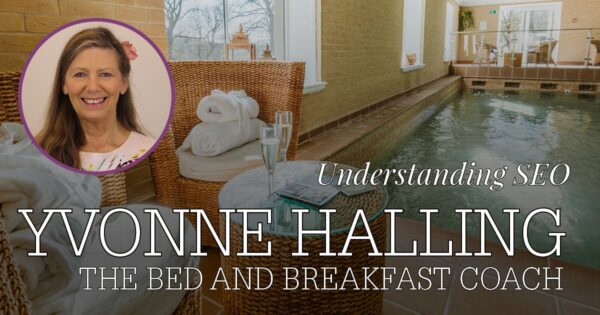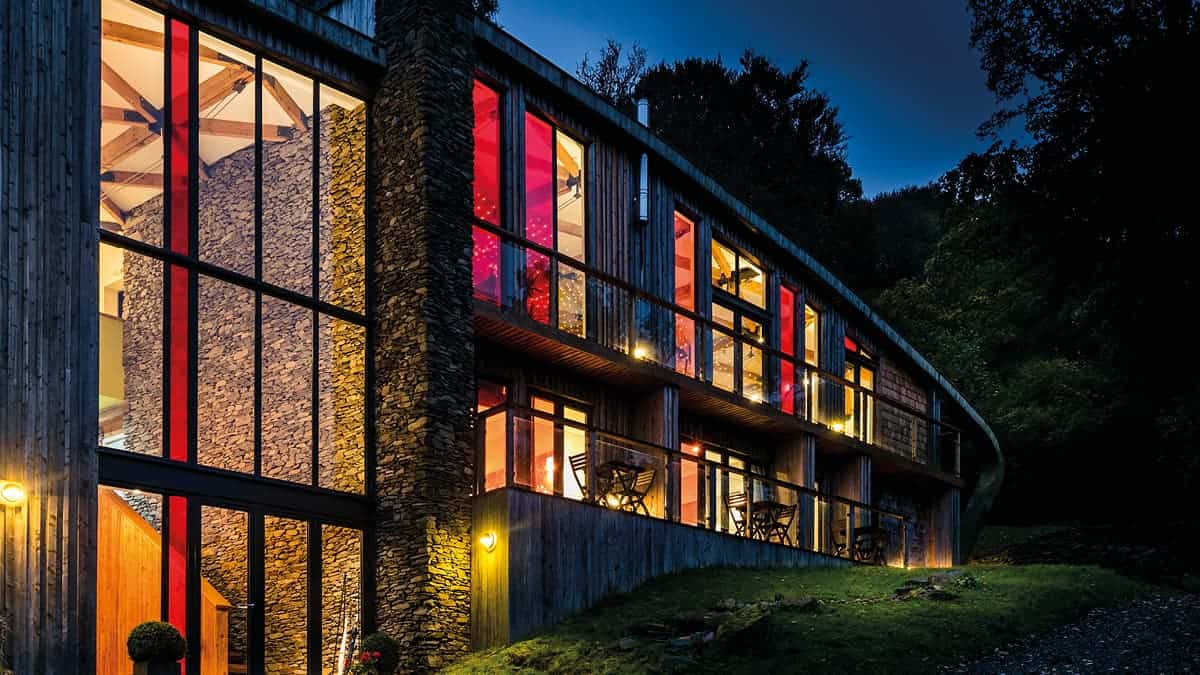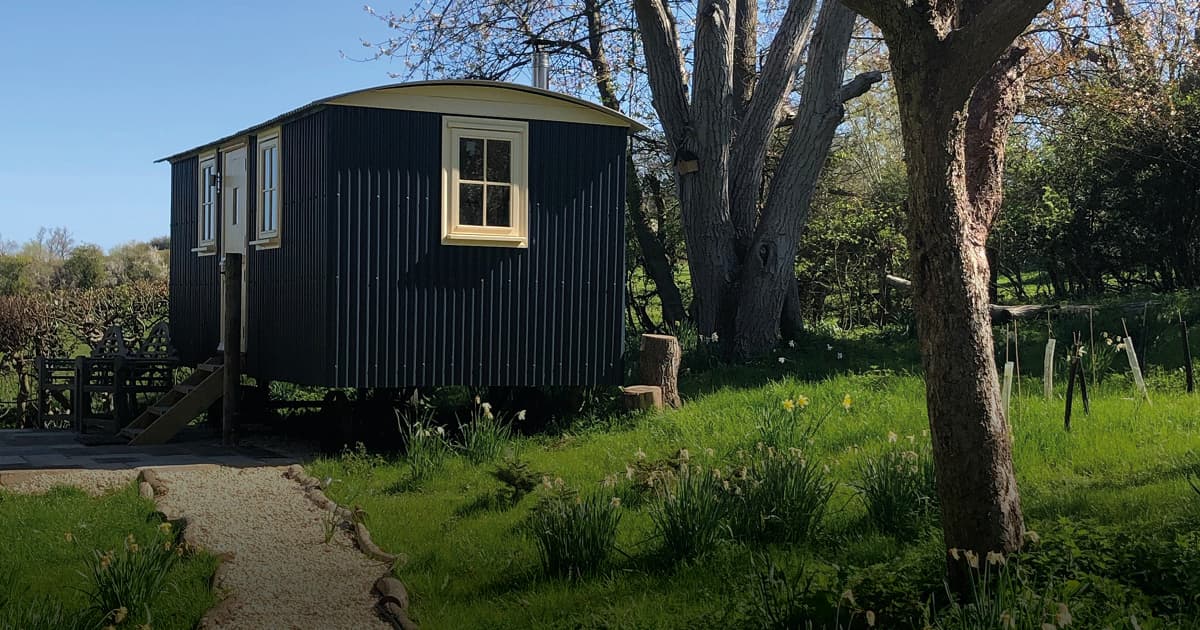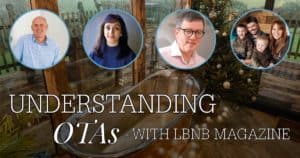
What is SEO and how does it help you boost direct bookings?
Simply put, SEO (Search Engine Optimization) is the strategy of getting more visitors to your B&B website, by attracting people who are using search engine sites like Google, YouTube and Bing to find and choose a B&B to stay in.
In a nutshell, SEO is a set of strategies to boost how often your website features in the search results.
The more often you feature in the top listings in Google (for example), the more visitors you’ll get to your website. And who doesn’t want more of that?
So how do you use SEO to increase the number of visitors to your site?
Let’s look at the two types of SEO – “On-Page” and “Off-Page.
On Page SEO
On-Page SEO relates to all the elements on your web pages that impact your search engine rankings.
The goal of On-Page SEO is to inspire the search engines to list your site as one of the leading sites with high-quality, relevant content when people search for B&Bs and related information that you might have on your site (e.g. places to see in your local area).
Google has a set of detailed rules that determine how well your website will feature in the results for searches like these.
They all boil down to an assessment of how well someone searching on Google (as the main search engine) and then visiting your website will quickly and easily find what they’re searching for (based on what they typed into Google before clicking the search results to visit your website).
First, determine what your potential guests would need to know before they book with you. If you’re relying on search terms such as “accommodation in Torbay” then you’ll be in a very competitive market, especially with the OTAs.
But if you can create blog posts or articles around reasons to come to your area (i.e. things to see and do – and the advantages of the area), then you’ll be in a different arena.
You’ve probably got a list of questions your guests usually ask you when they’re staying, such as:
- Where’s the best place to eat (in your area)?
- What time do main attractions (in your area) open?
- What can I do in (your area) if I only have one day?
You could easily turn each one of those questions into blog posts of 300 words or more with an image or two, correctly labelled to match the topic you’re writing about (and not for example: IMG.1234.jpeg) and put these articles and images on your website.
Also, divide up your website into pages dedicated to each set of questions a visitor to your website might have, and create a smooth, easy path for them to book with you as and when they get answers to their questions.
And although Google prefers you having lots of pages on your website, so no one page is too crowded (making it hard to find what the reader is looking for), keep your site structure as simple as possible.
Keep your website menu simple and clear, again with an easy path for your site visitors to book with you.
Titles and Headings
The title and subheadings of your page help Google determine what your specific page is all about.
Think about what potential guests will see when they land on one of your web pages. They’ll likely scan through the subheadings first and make a quick decision about whether your page is worth their time or not.
Google ‘bots’, (i.e. the software that scans and assesses your site for how well Google will rank you in search results) behave in a similar way.
They scan your titles and subheadings to determine if your content is relevant for the search requested.
Make sure that the search terms always match the content from the link in Google. That requires you to think about each page of your site in terms of which question(s) it answers that someone is likely going to type into Google.
As a result, very rarely is it enough to send people to your website home page.
Try to be more specific so that visitors can quickly and easily get to the part of your website that has the information that interests them.
For this reason, you’ll want to include your primary keywords within your titles and headers.
You’ll also want to structure your subheadings strategically with H1 and H2 header tags.
Responding to what the market is asking for is the easiest way to improve your website’s visibility.
So with that said, let’s look at a terrific way of boosting your site’s visibility…
Off Page SEO
Off-Page SEO is about how trustworthy the Google algorithms believe your website to be. The longer you have your website, the more trustworthy it will be.
And the more dynamic (ie: changing) content you have, means more bots will see you first, which means more visitors will be presented with your website content.
Having third party links to it will improve it even more.
One of the best ways to do this, is having a Google review widget on your website which means all verified by Google reviews will display automatically and be updated for you.
This is dynamic content that others are providing for you to increase your trustworthiness.
You can see how this works and try it out for free HERE.
Important Note: Trip Advisor also provides back links for you, but I don’t recommend using that facility as when your website visitors click on the widget, it takes them to TA’s site where there are all manner of distractions leading potential guests away from you!
On that note, be careful not to have too many links to other sites on your website, as people will easily get distracted and forget about you and your B&B!
And no-one wants that!
Happy SEO-ing!
Top Tips
- Answer questions in your page content. People tend to search “where can I eat in torbay” over “places to eat in torbay” so more info… Google Schema
- Be realistic when you select which key phases to target. “Accommodation in Torbay” will have lots of completion whereas “Luxury Accommodation in Torbay” is much more realistic. More info… Long Tail
- Put yourself in the shoes of a potential guest and consider their journey from search to book. What keywords would they use?
- Once you’ve selected your 5 – 10 key phases, use them in the content for your website, especially in titles. Aim to have a page on your website for each key phrase.
- Keep your site structure simple, clear and well ordered.
- Be careful to include all the “usual content”. Book now, contact us, where to find us are all essential
- Update regularly with new content.
- Use headings H1, H2 and H3. As a general rule H1 is the title of the page, H2 is the question and H3 helps break down the answers
- Link to other websites of interest.
- For quick results consider paying for Google Advertising. More info… Google Adwords



